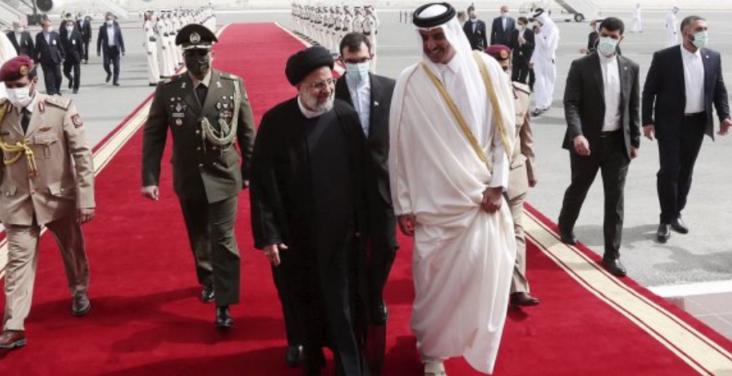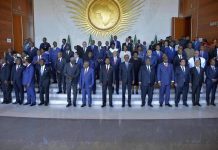Africa-Press – Botswana. The Gas Exporting Countries Forum believes that green energy is needed to combat climate change.
On 22 February, representatives from the 13 member countries of the Gas Exporting Countries Forum (GECF) met in Doha for the sixth annual summit, which focused on the theme ‘Natural Gas: Shaping the Energy Future’. In the midst of the crisis between Russia – the only European country in the GECF – and the West, the organisation reaffirmed its desire to promote natural gas as an “abundant, affordable, clean and reliable source of energy”, while criticising the “protectionist” practices of importing countries.
On the environmental front, the ‘Doha Declaration’ stresses the Forum’s desire to strengthen environmental credentials of natural gas, in particular, by endeavouring to reduce flaring, a major energy issue. This practice, inherent in oil extraction, results in a loss of $82bn in revenue for producing countries each year, not to mention its negative environmental impact.
A ‘clean’ fossil fuel
According to a Global Data study published on 31 August 2021, even though GECF countries burned almost 13bn cubic feet of gas per day – enough to power Japan for a year – it went to waste because of the high cost of capturing the gas during oil extraction, the lack of access to better markets for producing countries, and the low volume of gas produced at individual oil sites. Along with the problem of methane in the gas, this issue undermines the Forum’s climate commitment.
Even though it is the least polluting fossil fuel, far behind oil and coal, can natural gas really be considered clean and sustainable? According to Francis Perrin, a research director specialising in energy issues at the Institute for International and Strategic Relations (IRIS), the GECF declaration illustrates “logical” reasoning and the desire by member countries to be seen as decisive players in environmental issues.
“Natural gas is, from the point of view of CO2 emissions, the best or least bad fossil fuel. It makes sense for GECF to highlight its advantages in the energy transition and to develop a case to show the world that gas not only counts in the short term, but that it also has a future. […] if gas has a future, it means that these countries are important.”
Carbon tax at EU borders
Another important point in the Doha declaration is the economic situation of oil-exporting countries. Without naming the parties involved, the GECF expresses its “deep concern” about “unilateral economic restrictions, […] the extraterritorial application of national laws and regulations against member countries.”
According to GECF, the climate issue could be used to “introduce discriminatory practices and protectionist measures in direct contradiction with world trade rules”. This is a thinly veiled reference to the European Commission’s project to create a border carbon adjustment mechanism (BCAM). This flagship project of the Green Pact for Europe aims to impose carbon pricing, which is already in force on the most polluting European products, on imported goods. It would basically serve as a “climate lock” system at Europe’s borders.
“The European Union wants to achieve carbon neutrality by 2050. Observers have pointed out that if we continue to trade without changing anything with countries that develop fossil fuels, we risk having competitivity problems,” says Perrin. “This is reminiscent of other industries in Europe, which are subject to increasingly strict constraints in terms of limiting carbon emissions,” says the researcher, who feels that the carbon adjustment mechanism would help restore some kind of balance.
Invest or pay the price
Finally, the Doha Declaration stresses the urgent need to invest in the gas sector. Barely two years after the start of the pandemic, the consequences related to the reduction in investment have disrupted the global value chain: from exploration to production, transport and consumption.
On 16 February, Mohamed Hamel, GECF’s secretary-general, spoke about the crucial subject of investment at a symposium on energy prospects. He stressed that the natural gas industry requires “fair value and fair risk-sharing among all stakeholders to ensure security of demand and supply”, adding that otherwise, “lack of investment today will make gas too expensive tomorrow”. This is an issue that GECF member countries intend to address at the next COP27, which will take place from 7 to 18 November 2022 in Sharm el-Sheikh, Egypt.
For More News And Analysis About Botswana Follow Africa-Press






